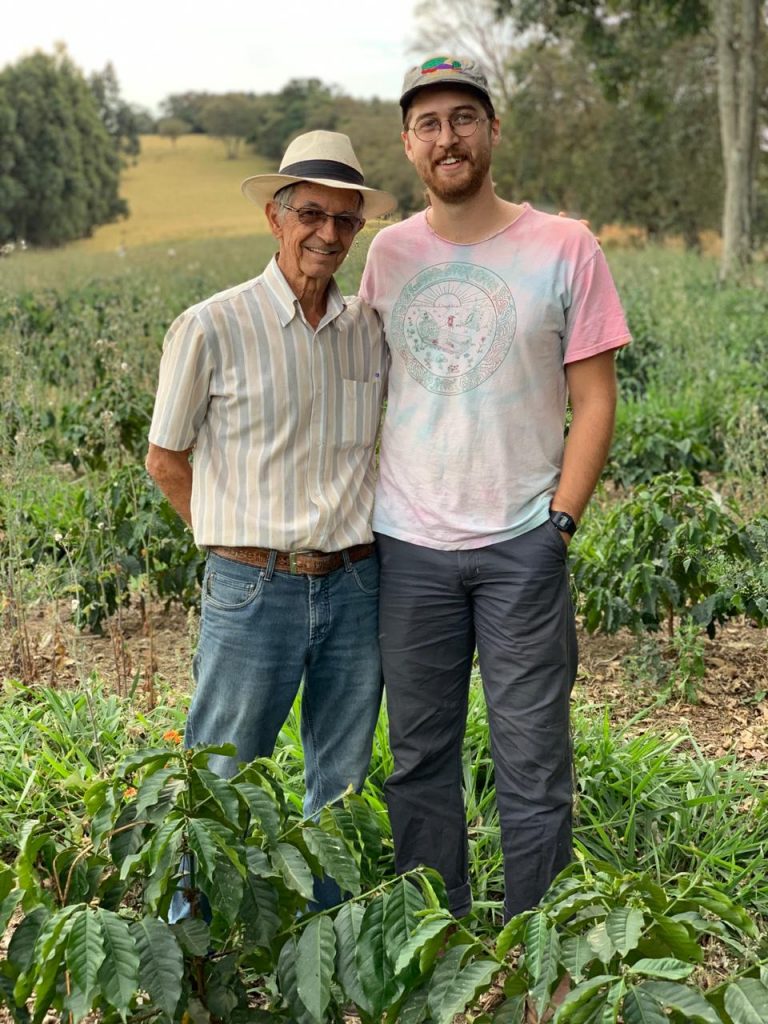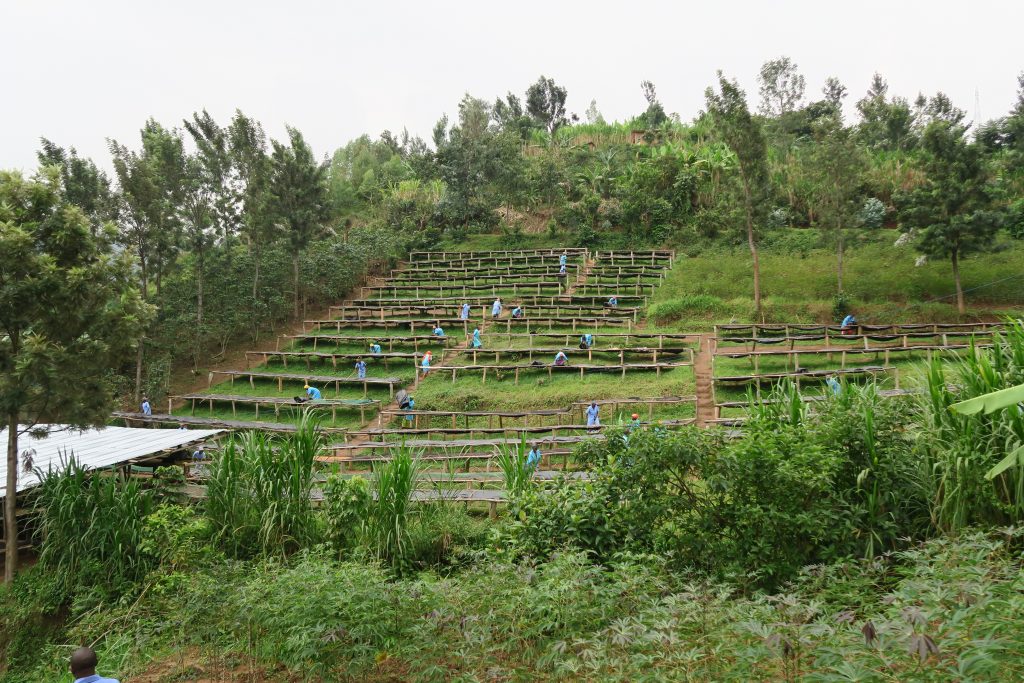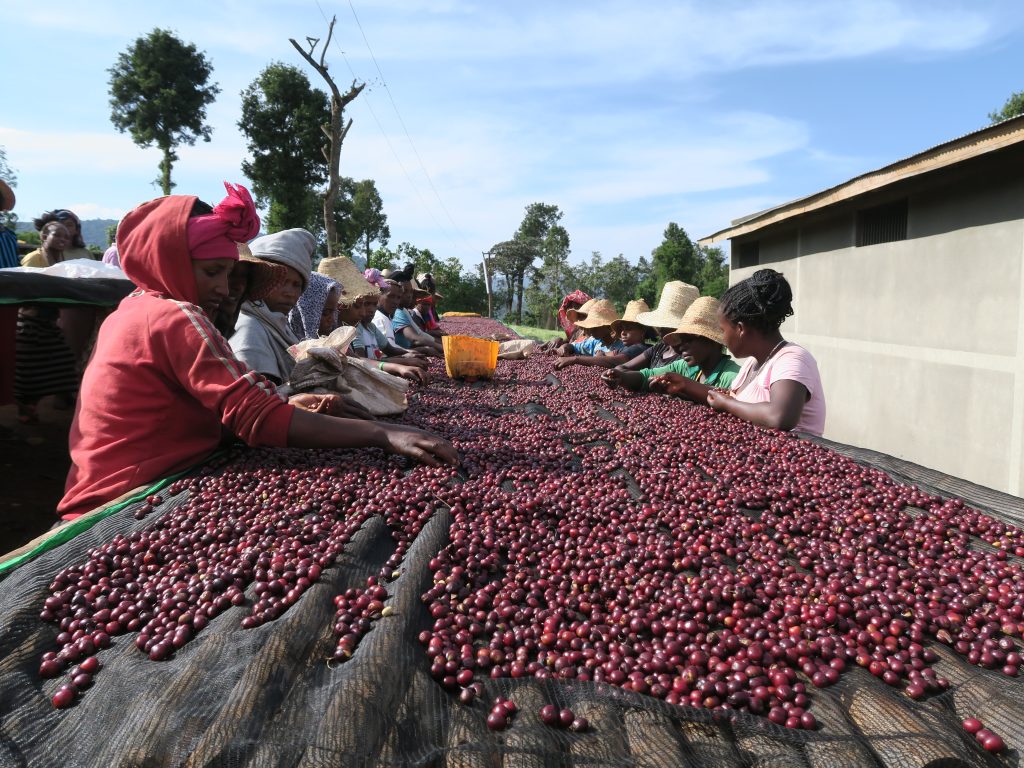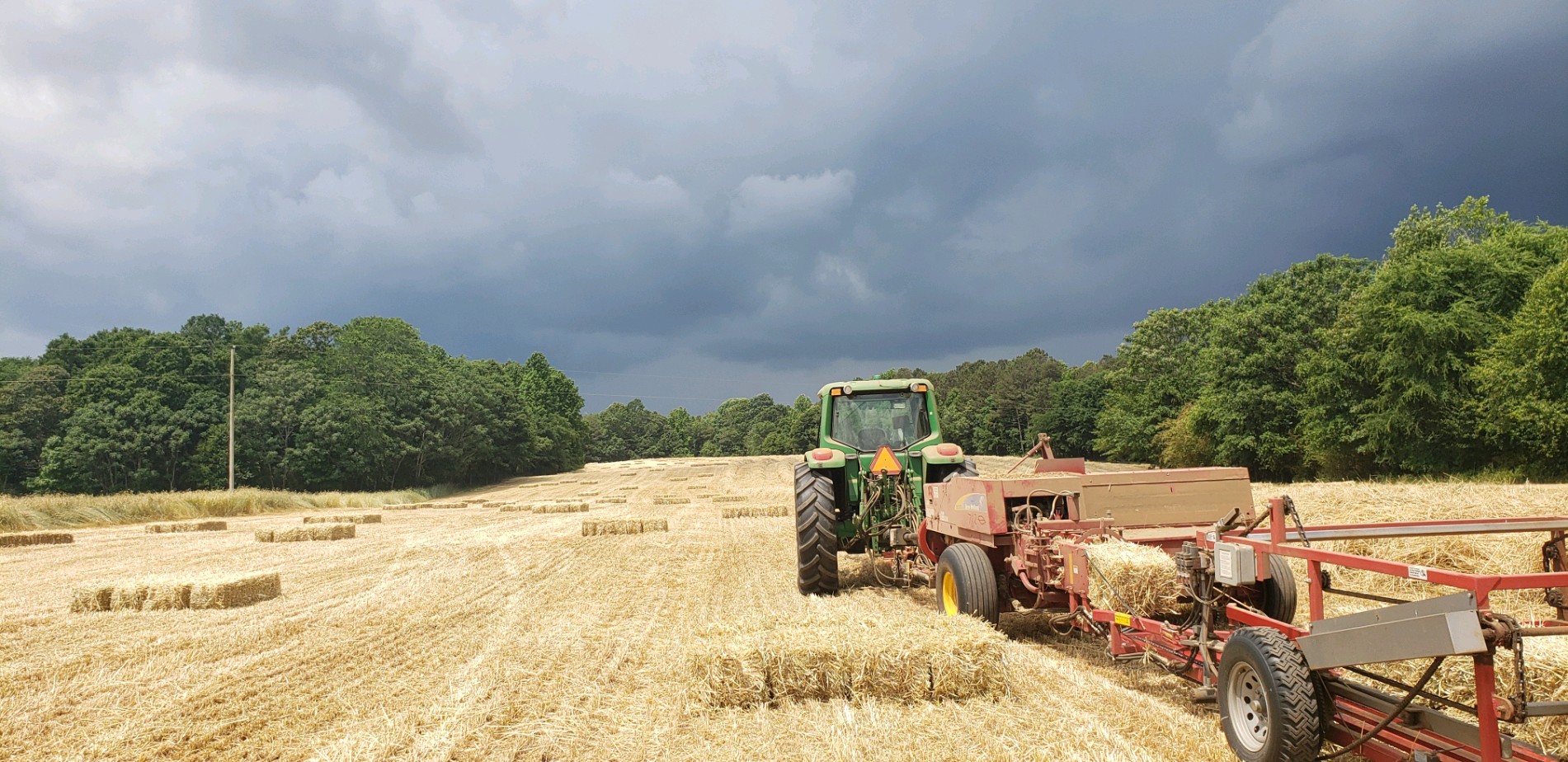For Ben Bowdoin, lead roaster and green buyer of 1000 Faces Coffee in Athens, coffee is just as much about the relationships between the buyers and the farmers as it is about the beans. He expresses this through their business model, a relatively new concept called direct trade.
“The biggest impact of our direct trade model are the relationships with the farmers themselves. The way in which business decisions are affected, in a way, comes secondary to those relationships,” Bowdoin said.
Direct trade coffee, according to a study by Appalachian State University, has three characteristics that differentiate it from standard coffee: Price premiums are paid directly to farmers, harvesting practices are sustainable and the quality of the product is higher.
Fair trade, the alternative model to direct trade, also has a sustainable objective but is designed in a more structured way. The same paper from Appalachian State University notes that fair trade, “is achieved through setting a minimum price for all Fair Trade coffee sold plus a guaranteed premium for producers that must be used to improve the quality of life of the producer and their communities.”
Unlike fair trade, direct trade has no certification and no rules, which Bowdoin says can make it superior to fair trade. It’s a business relationship built almost solely on trust and can be a highly sustainable business model if both partners carry out their responsibilities effectively.

For 1000 Faces, the direct model has been the backbone of their business in the most positive of ways. Bowdoin, who has worked at 1000 Faces for five years, says one of the beneficial aspects of being a direct trade business is being able to talk directly with the farmers about how the harvest at a certain point in time is going.
Knowing exactly who is growing the coffee — where and how — brings ease and confidence to buyers like Bowdoin.
“The coffee farms in Africa are more like a lot of people growing coffee in their backyards, and they’ve been doing this for a long time,” he said.

The direct trade supply chain is simpler, more transparent and can also develop a beneficial relationship between the roaster and farmer that can help improve farming practices which create the growth of a higher quality coffee, the Appalachian State paper explains.
“As well as creating a roaster-farmer direct price premium guarantee, the purpose of the new direct trade supply chain mechanism is to empower coffee growing communities as well as teaching them eco-friendly and socially responsible growing practices, and how to evaluate the quality of their product,” the paper states.
There is some evidence, according to research included in the university paper, that shows some consumers care more about the sustainability aspect of the coffee they buy than the price of the coffee.
“A field experiment in 26 supermarkets in New England and found that sales rose by almost 10% when the coffees carried a Fair Trade label compared to similar coffees carrying a generic label,” the paper states.
Kaila Marcus, a senior at the University of Georgia and avid coffee drinker, is one of those consumers who values the importance of investing in a business that she knows treats workers fairly.
“It makes me feel good to know exactly where the money I spend on a cup of coffee is going, and that it’s going to people who deserve more than the minimum fair wage,” she said.
The freedom for a thriving partnership also allows room for things to go wrong in the partnership between farmers and buyers. Some limitations to the direct model include the possibility of buyers not paying farmers a fair wage, or farmers not following through with the quality of coffee they promised the buyer, according to Bowdoin.

Building great relationships with farmers often thousands of miles away in another country also requires the maintenance needed to keep those relationships strong.
“If there was a benefit of fair trade over direct, it would be the fact that you don’t have to spend as much time or energy if you were fair trade,” Bowdoin said.
This is a likely limitation for bigger coffee companies who would maybe want to switch to a direct model, such as Starbucks, Bowdoin said, because the bigger the company, the harder it becomes to maintain those personal relationships on a much larger scale.
Although direct trade is a new and loose concept as a business model, it could be a positive opportunity for other small coffee businesses to pivot towards.
“There’s a lot of transparency, and I think that allows us to be more sustainable, more involved and be able to understand the day to day struggles and successes of everyone’s workload,” he said. “It always comes back to relationships- that would be the biggest benefit of direct over fair trade.”
Simran Sethi is a senior majoring in journalism in the Grady College of Journalism and Mass Communication at the University of Georgia.







Show Comments (0)